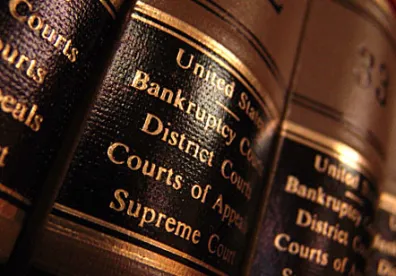Last month the U.S. 4th Circuit Court of Appeals upheld the dismissal of a lender liability lawsuit against Wells Fargo on grounds of “res judicata.” While this common law concept of “claims preclusion” is nothing new, how it was applied may give pause to borrowers who seek bankruptcy protection to forestall foreclosure and forced liquidations.
This story begins in 2006 during the height of the real estate market. Providence Hall Associates (we will call them “Providence”) decided to borrow money from Wachovia Bank. After the financial meltdown, Wachovia would be acquired by Wells Fargo.
Providence is a Virginia limited partnership. At the time of the loan, it owned real estate in several states. Providence sought to borrow $2.5 million and secure an additional $500,000 line of credit.
By early 2006, Wachovia was often demanding commercial borrowers enter into “interest rate swap” agreements. Wachovia’s deal with Providence was no exception, if Providence wanted the money, it needed to agree to the swap transaction.
Term sheets and loan documents were prepared. Later it was discovered that the term sheet didn’t define the terms of the interest rate swap agreement nor could Wells Fargo find a copy of a swap agreement signed by Providence. There apparently was no agreement on the terms of the swap agreement except that it was based on LIBOR, the London Interbank Offered Rate, a common benchmark in the financial industry.
As noted earlier, the loan was made at the peak of the real estate market. By 2011, the market had crashed and Providence was having difficulty making payments. Wells Fargo declared the loan in default. Fearing foreclosure, Providence sought reorganization and filed a Chapter 11 petition in bankruptcy court.
Many states including Virginia and Maryland are nonjudicial foreclosure states. Typically, borrowers in these states have less protections and the foreclosure process can occur quickly. Borrowers in these states will often file bankruptcy to buy time and reorganize.
Once in bankruptcy court, the matter became heated. Wells Fargo demanded nearly $3 million and claimed it was owed over $300,000 in termination charges. The bank demanded the bankruptcy be converted into a Chapter 7 liquidation. Providence, however, blamed its bankruptcy on the bank and claimed that Wells Fargo reneged on a forbearance agreement.
The court refused to convert the bankruptcy into a liquidation but did appoint a trustee and approved a plan to sell off two properties in order to satisfy the loans. After the properties were sold Providence emerged from bankruptcy and continued to operate, albeit with fewer properties.
Shortly after emerging from bankruptcy, Providence sued Wells Fargo as successor to Wachovia. It claimed that the interest rate swap agreement was a sham and was based on the LIBOR rate now known to have been “illegally rigged and manipulated.”
Providence’s lawsuit was brought in Circuit Court of Loudoun County, Virginia. The complaint contained seven claims for relief, one of which was under the federal Bank Holding Act. Wells Fargo used the federal question (the Bank Holding Act claim) to remove the case to federal court.
Once removed, Wells Fargo asked the court to dismiss Providence’s complaint on res judicata grounds. The bank claimed that the bankruptcy court’s sale order precluded Providence from later making claims about the efficacy or legitimacy of the swap agreement.
At hearing, the trial court sided with the bank and dismissed Providence’s claims. The instant appeal resulted. In March, a three judge panel of the 4th Circuit affirmed the dismissal. Wells Fargo won. Providence’s claims against the bank are barred forever.
In siding with the bank, the appeal court focused on the doctrine of “res judicata” or claims preclusion. Stated simply, the court said “a final judgment on the merits of an action precludes the parties or their privies from relitigating issues that were or could have been raised in that action.”
Citing extensive judicial history, the court said that res judicata has three elements. Specifically, for res judicata to apply there must be
-
“a final judgment on the merits in a prior suit;
-
an identity of the cause of action in both the earlier and later suit; and
-
an identity of parties or their privies in the two suits.”
The above three elements are the formal requirements before res judicata can apply. Superimposed on these formal requirements, the court recognized two “practical considerations” that should be taken into account:
-
“whether the party or its privy knew or should have known of its claims at the time of the first action,” and
-
“whether the court that ruled in the first suit was an effective forum to litigate the relevant claims.”
Providence argued that the trial court erred in all of the formal and informal requirements and considerations. Obviously, the appeals court found its arguments unpersuasive. The arguments of most interest centered on whether the bankruptcy sale order was a “final judgment on the merits,” whether Providence knew of its potential claims during the bankruptcy and whether the bankruptcy court was an “effective forum” to litigate the interest rate swap claims. We will examine each of these separately.
Were the bankruptcy sale orders a “final judgment on the merits”? Case law in the 5th, 6th and 7th Circuits say that bankruptcy orders can be considered a final order or judgment. Were those orders “on the merits”, however?
There are good arguments to support Providence’s claims that they were not. Unfortunately for it, both the trial court and appeals court disagreed. A detailed reading of the opinion and briefs suggest that the court have ruled differently.
What makes this case even more interesting is that Providence did raise some of its claims during the bankruptcy in an adversary proceeding. Those claims were later dismissed by the court without prejudice and without any hearing or findings suggesting that Providence could later litigate these issues. Providence claimed that the lack of a ruling on the adversary proceeding means there was no ruling on the merits. The appeals court, however, said that the subsequent sale order served as a final judgment.
The other disputed considerations at play in this case were the effectiveness of the bankruptcy court as a forum for litigating Providence’s lender liability claims and even the knowledge of the LIBOR issues. Providence says that as a debtor and no longer a debtor-in-possession, it could not have litigated its fraud claims against Wells Fargo. In our opinion, it couldn’t.
The appeals court focused on the trustee’s ability to litigate the lender liability question. As the “privy” for the debtor, the trustee had the ability to argue Providence’s claims.
Is that practical? Debtors who seek bankruptcy protection know that trustees frequently have different interests than the debtors. While the trustee in the Providence case could have conceivably argued the claims, it is not practical to expect them to do so, however.
What about the fact that when the bankruptcy was filed no one even knew that the LIBOR rate was rigged? The court dealt with that problem in a short footnote. It the conceded that although at the time the trustee was appointed, no one knew of the LIBOR rate fixing scandal, that information had become public by the time the sale order was signed.
The Fourth Circuit’s decision is a big win for banks and a terrible blow for borrowers. At the time of the bankruptcy, Providence was simply trying to stay in business. The entire LIBOR scandal wasn’t even public knowledge at the time it filed for bankruptcy protection. In our opinion, it was not very practical for Providence to expect that the trustee would pick up its cross and fight in its place as debtor-in-possession.
There are important lessons for borrowers to be learned here. Understand that if you seek bankruptcy protection, you may lose your ability to later sue your lender for misconduct. To the extent you have claims, they may have to be litigated in bankruptcy court and not before a more sympathetic jury in state court. Dismissing an adversary proceeding against the lender, even without prejudice, could later prevent you from litigating the issues in another forum.




 />i
/>i

